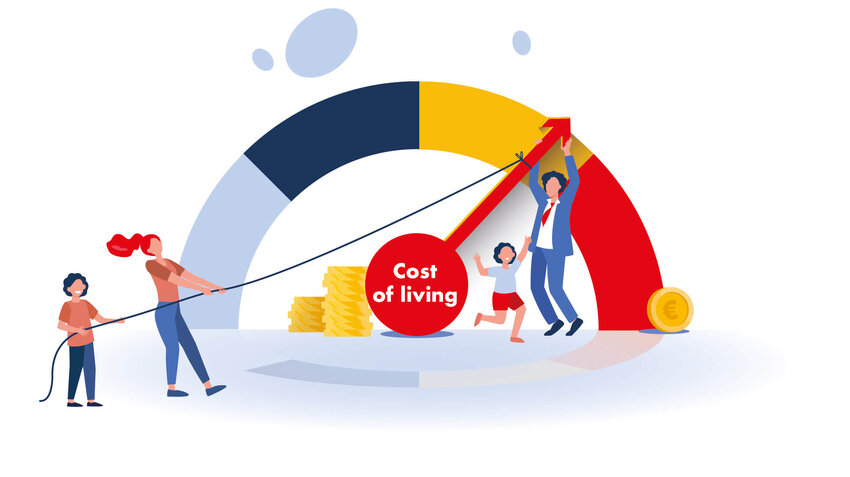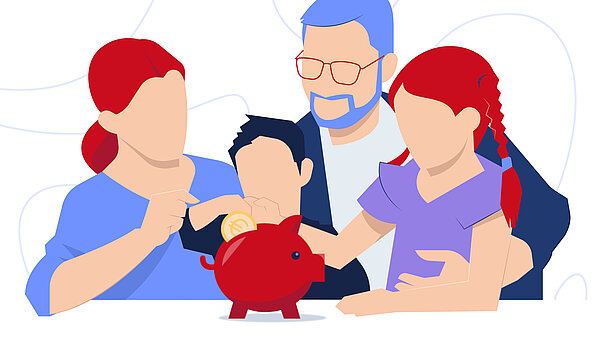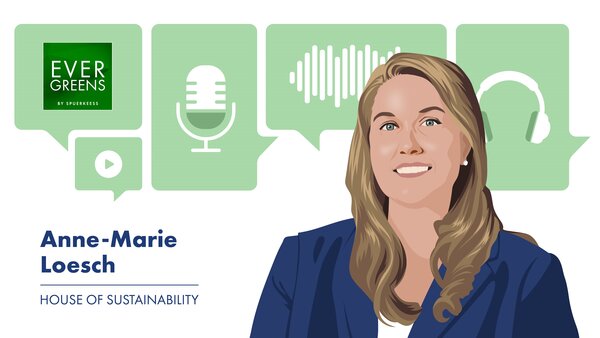It is essential to have a conversation about money with children early on, as they will have an easier time understanding it. Even a 2-year-old can already understand basic concepts. Just because they cannot talk, does not mean they don’t understand. Toddlers already have a crystal-clear grasp of their environment and are quite competent. Infants begin to form their capacity for logic at a very young age, they will be able to learn and comprehend our actions if we take the time to explain them. To help children understand money, it is better to describe what you are doing as a parent, including the money stuff. For example, while you're in the grocery store, imagine you are hosting a dinner for 5 with a budget and share your logical thinking.
Reading aloud to children helps, even if they don't fully grasp the concepts or words. As a parent, you should speak out, explain the reasoning behind things, and keep them informed. This approach also contributes to developing their language skills, vocabulary, and reasoning abilities from an early age.
When kids reach around 4-5 years, you can begin including everyday discussions of money and financial topics. Together, you can teach your children good money management skills by making a grocery list, creating a budget, and researching potential places to buy items at a discount.
Having a chat with your child about money is like telling a tale, and it should be age-appropriate and engaging. Speaking at their level, elucidating concepts, and using relatable examples from their lives can make the discussion age appropriate.
Use a lighthearted tone and make a play role where the parent is the child, and the child is the parent. By doing so, you can help your children grasp the idea of the cost of living in a way that makes sense to them.









![[Translate to English:] [Translate to English:]](/fileadmin/_processed_/4/7/csm_438_EXP_Julien_Kohn_Spuerkeess_9001fc61ae.jpg)
![[Translate to English:] [Translate to English:]](/fileadmin/_processed_/c/3/csm_437_EXP_David_Schmit_Spuerkeess_6beedf10c9.jpg)
![[Translate to English:] [Translate to English:]](/fileadmin/_processed_/6/7/csm_433_EXP_Francesco_Ferrero_LIST_31171ca1b1.jpg)
![[Translate to English:] [Translate to English:]](/fileadmin/_processed_/d/1/csm_434_EXP_Nicolas_Griedlich_Deloitte_f84788af86.jpg)
![[Translate to English:] [Translate to English:]](/fileadmin/_processed_/0/d/csm_435_EXP_Rachid_M_haouach_Spuerkeess_6aout25_4132487c59.jpg)
![[Translate to English:] [Translate to English:]](/fileadmin/_processed_/0/6/csm_431_EXP_Claude_Wurth_Spuerkeess_7146fed026.jpg)
![[Translate to English:] [Translate to English:]](/fileadmin/_processed_/7/5/csm_368_EXP_Alternatives_epargne_Pro_c96f107bd8.jpg)
![[Translate to English:] [Translate to English:]](/fileadmin/_processed_/0/d/csm_392_EXP_Michel_MARX_189a526800.jpg)
![[Translate to English:] [Translate to English:]](/fileadmin/_processed_/9/d/csm_328__EXP__Andrea_Maramotti__Immotop_163f2ecbe1.jpg)

